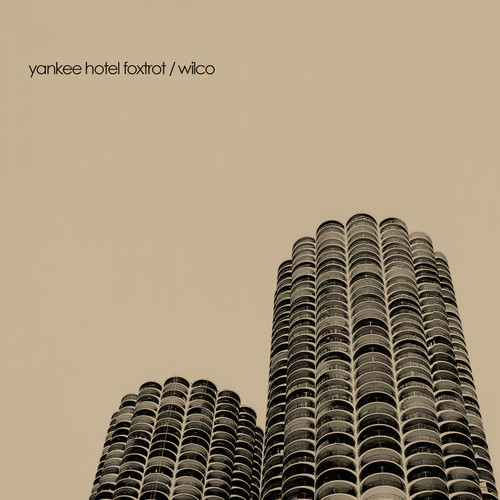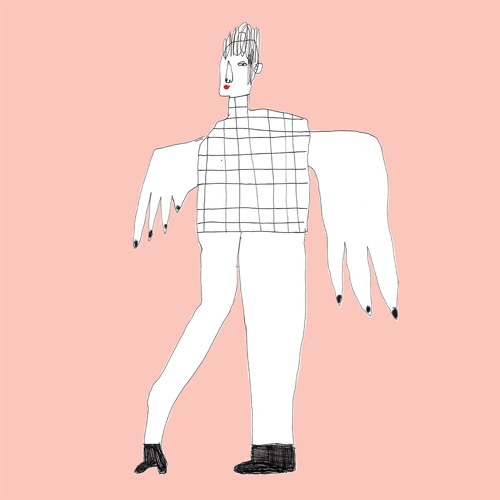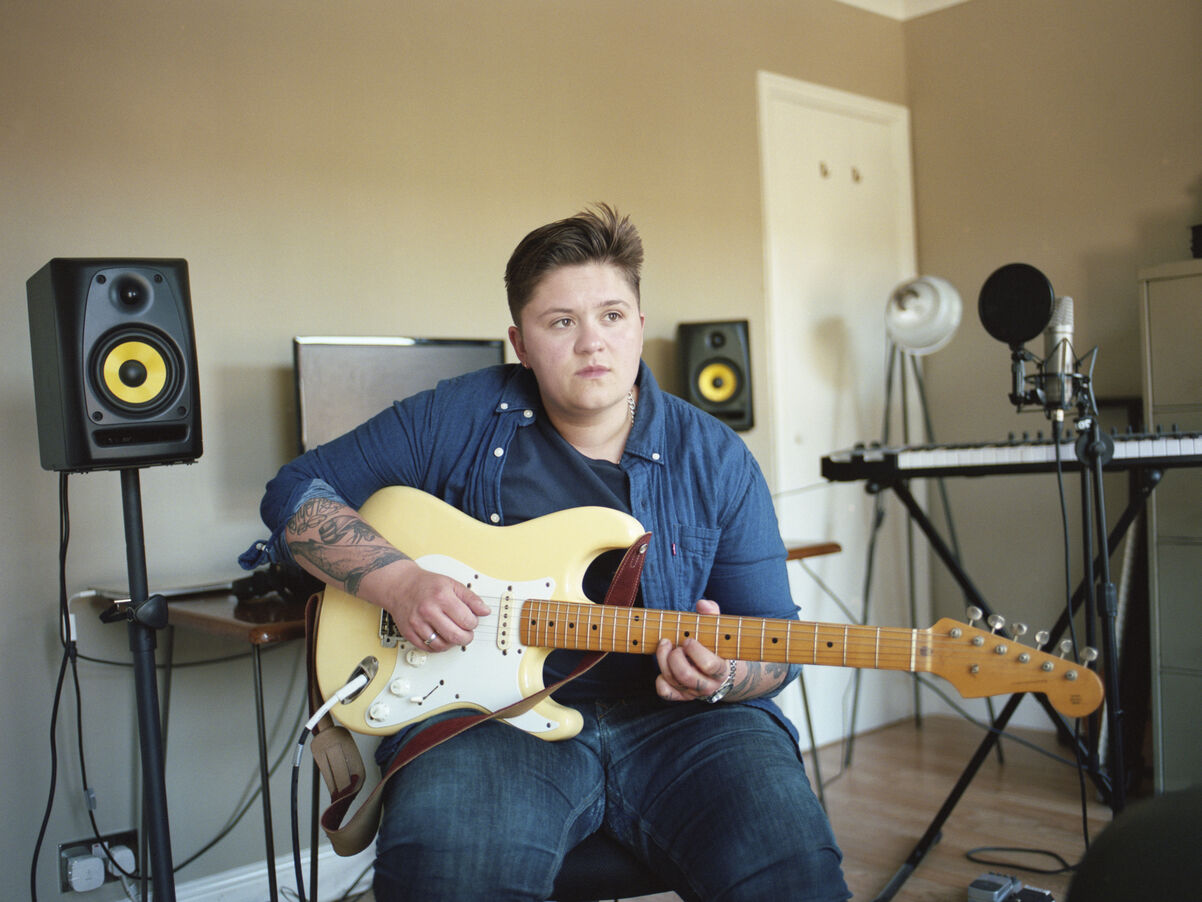Coming out means something different to each LGBTQ person. For some folks, it’s an ongoing, everyday process; others can pin when they came out to an exact year, or month, or moment. Regardless of how or when it happens, one thing’s for sure: coming out is emotional, baby!
And, as the adage goes, with Big Feelings comes the need to bury oneself in one’s headphones, blasting music, hoping it’ll drown out all those overwhelming, uncomfortable realizations. That music, for queer folks, often becomes intrinsically tied to our coming out period. Everyone has breakup songs and senior year songs and love songs and LGBTQ people get coming out songs, too.
In 2018, we’re totally spoiled by the abundance of fantastic queer artists making music. From Janelle Monae’s unabashedly queer Dirty Computer to Troye Sivan’s “Bloom,” a veritable bop about bottoming, there’s a variety of ways for LGBTQ folks to feel seen in popular music today. But when millennials were young–in those teenage years of figuring oneself and one’s sexuality outthere were far fewer mainstream queer musicians, and even fewer queer musicians of color, to latch onto. For many folks, that meant searching for queerness in straight and/or white musicians’ work. Not because queer musicians of color weren’t making music, but because they weren’t given the same opportunities as openly gay white artists were. Thankfully, we’re moving away from that incomplete landscape. Hopefully, this wave of artists like Kehlani and Perfume Genius and Hayley Kiyoko will help young LGBTQ folks feel more comfortable in their own skin, offering nuance and diversity to boot.
INTO chatted with six queer folks, ages 19 to 32, about the songs and albums that transport them back to their baby gay days, from bro ballads to Broadway to (of course) Tegan and Sara.
Ashley Evolve by Ani DiFranco

Like many young queers, for me it all started with Ani DiFranco’s album Evolve. I always knew I was…gay, but for a long time my mom would just say I was “funny.” (It turns out “funny” is black parent talk for gay.) I had always been a weird kid who made out with my My-Sized Barbie, but it wasn’t until summer camp in middle school that I really was able to put words to it, thanks to Ani DiFranco. I had no clue she was this big ol’ feminist gay icon until later, and it was this amazing surprise.
I used to go to a summer theater camp at a local college, and I found the album in a record store on campus. I’m not sure what made me pick that specific album that day, except I only had $15, it was on sale for $10 and the cover was really shiny and blueI had no idea it would have this huge impact on me. I spent the next 2 weeks of camp with my headphones on, taking in every word [on Evolve]. I’d see Ani DiFranco in concert about six times through middle school and high school. Of course, now she’s incredibly problematic, but at the time, it gave me this language I never had before.
Any time I put that album on, I’m taken back to that summer at theater camp. I instantly feel like a little baby queer, laying on my bed and questioning everything about myself. It was this emotional refuge where I could process all of my crushes and feelings. Her lyrics created this safe space within myself and I came to accept myself. All the feelings of “You’re not supposed to like a girl” and “You shouldn’t masturbate to The L Word with a Nokia cell phone” just disappeared.
Devin Made In The Dark by Hot Chip

Growing up in a small and isolated town, my exposure to music outside of MTV had been pretty limited. I ironically encountered my coming out album through a group of straight guys in my freshman year of college who had really good taste in music; my iTunes library doubled that year.
Hot Chip was one of my favorite discoveries, and when Made In The Dark came out during my freshman year I listened to it constantly. Alexis Taylor tends to sing in a higher range with a softness and vulnerability that always subconsciously read to me as gayat the very least, it was not a sound I was used to hearing from straight male singers. In particular, “We’re Looking For A Lot Of Love,” “In The Privacy Of Our Love,” and the title track were all such tender and private love songs that matched a very quiet but real awakening I was having in my interior life: that I really just wanted to love another man. They still remind me of being in my extra long twin dorm bed, thinking about how good it must feel to be cuddled to sleep in a man’s arms. I had never been with a guy before and the intimacy of these songs made me start looking inward and longing for it more and more.
But on the flipside, this album had some bops, which also makes it such an accidentally important gay album for me. You could hear “Ready For The Floor” blasting at every 2008 college pregamethere’s something so carefree about it that even during a time of inner turmoil always helped me let loose and start the night out in a great mood.This album put me in touch with a part of myself that had been buried and needed digging out, while also reminding me that I didn’t have to stop having fun and being weird through the process.
Sarah The Con by Tegan and Sara
Cliché alert! When I was about 19 or 20, I knew I was gay, but I was going through the slow process of coming out to my straight friends, people I perform with, and my family. I was also in the process of sucking at dating. The Con reminds me of this café I was working at in college, being totally hung up over a girl who had lost interest in me. Nobody ever came into the cafe, so I had a lot of time to eat bread and brood and be angsty. I knew Tegan and Sara were queer before I was familiar with their music, which was probably why I started listening in the first place. And after being exposed to so, so much lesbian folk music in my earliest coming out days, I was legitimately like, “Oh thank God, some queer women are making something that isn’t folk. I can be queer and not fit this one particular mold.”
The Con was catchy and poppy, and also let me totally indulge having feelings for another person for the first time (which was a totally different experience from dating guys). “Back In Your Head” was super catchy and also just happened to be completely relatable, and “The Con” just had this angsty pop opening that felt like it had the soul of a 90s girl rock band. It completely allowed me to indulge in Peak Angst (which I never, ever feel now that I’m an adult!).
I think it connected my queerness to a more universal human need for love and connection – that discovering my own queerness wasn’t just about what made me different from other people, but what also made us alike. For years before that, I had just been ambivalently dating men while my straight friends were going through real love and heartbreak and I was just kind of hanging out, not really knowing what I was missing out on. Since coming out was kind of a second adolescence in a way, this album reminded me that these feelings are felt by everyone.
When I first started toying with coming out, I was in middle school and spending most of my time either on AIM or deep in Internet forums. It’s less shady than it soundsit was mainly Rotten Tomatoes. I was the 13-year-old debating film with a lot of semi-employed middle-aged dudes. Because of that, I associate my coming out years with Wilco. It feels like a sensitive bro answer, but I think it was the last vestiges of listening to music that had to pass for straight.
Ryan Yankee Hotel Foxtrot by Wilco

When I first started toying with coming out, I was in middle school and spending most of my time either on AIM or deep in Internet forums. It’s less shady than it soundsit was mainly Rotten Tomatoes. I was the 13-year-old debating film with a lot of semi-employed middle-aged dudes. Because of that, I associate my coming out years with Wilco. It feels like a sensitive bro answer, but I think it was the last vestiges of listening to music that had to pass for straight.
The band as a whole evokes that general time in my life, but “I Am Trying to Break Your Heart” was the soundtrack for a bleak night where I momentarily summoned the strength to enter into a gay chat room and then promptly shut my computer and laid on the bathroom floor. That’s a total sense memory with that song.
Yankee Hotel Foxtrot was more a refuge than anything elseit felt suffused with the same kind of angst, but wasn’t too wallowing either. I didn’t feel like my life was that miserable; emo did nothing for me. Wilco felt like the right level of brooding. It also played with digital soundscapes in a way that sort of mirrored my own coming out: so many of my most intense experiences were with total strangers online. That idea of raw emotion filtered and scrambled through technology hit me immediately. I rarely seek Wilco out now, but every time one of those songs comes on shuffle I find it impossible to skip. It’s really beautiful music. I feel nostalgia, and I marvel at the lyrics in a way that I don’t think I fully processed at the time.
Rosie Next To Normal Original Broadway Soundtrack

I first admitted to myself that I wasn’t straight towards the end of my freshman year of high school, but I didn’t realize I was a lesbian until about four months into my first relationship with a girl. During my freshman year, all of my friends were bi, so I didn’t have to come out, I just had to kind of be like, “Haha, me too, guys.” At the time I kind of felt like I was in someone else’s skin and didn’t really recognize myself. It was like a growth spurtnot physically, but absolutely mentally.
When I met who would become my first girlfriend (who later came out as trans after we broke up, so he/him pronouns from here on), I was shocked that he didn’t listen to any “real” music, and he was shocked that I didn’t listen to any musical theater. So I made a long list of “real” songs for him to listen to, and he made me a huge list of songs from musicals I should listen to. Next to Normal was the first one that I listened to, and I didn’t think anything could be better than this show. This was probably mostly because I had a crush on the person who introduced it to me, but it’s still an amazing show. For a while, I just learned all the words to impress the person who introduced it to mewhich worked, I thinkbut after that, it was mostly just that I had gotten used to listening to it.
I hardly listen to musical theater anymore, but it was pretty much the only thing I listened to for the entirety of that relationship. I very rarely revisit the soundtrack. I wish I could say it made me feel something now, but really, I listened to it for so long that it’s just become another album on my Spotify. It reminds me of car rides with my ex, though, because I used to insist he played it. So I guess that’s nice!
Grace “New Hampshire”by PWR BTTM
I started listening to PWR BTTM the summer before I came out. “New Hampshire” ended up being a song that really connected me with my best friend, Helena. It was kind of emblematic of our friendship, because the song is about how you want to die and be remembered and we were both depressed as hellbut more importantly, she was the person that was with me every step of the way as I began to transition.
I went to see PWR BTTM in concert about a month after I came out, and just a few days after I interviewed them for our local alt-weekly about which costume I should wear for Halloween. I went with their pick and showed up to the concert dressed as the beach my father was murdered on. (My real father wasn’t actually murdered on a beach, but he has been dead for a long time.) So I get there, and they see me in my outfit and [guitarist/singer] Ben Hopkins pointed me out and was like, “Look at this beautiful queen!” in front of everyone. And honestly, until shit hit the fan with PWR BTTM, that was pretty much the best moment of my entire life. It’s odd looking back at it now, knowing how intrinsic their music was to my sense of self and my self-confidence during that period of my life, but knowing that just a handful of months later all of those memories would be hollowed out by the truth of Ben’s actions.
When the [sexual assault allegations against Hopkins] came out, I listened to all of PWR BTTM’s songs one last time to say goodbye. My goodbye listen was more something that I felt like I needed to do than something that actually provided me any sort of closure or relief. It was a check I had written to myself in my mind a few days before, and by the time I cashed it, the acid and hollowness I had observed from the fallout online robbed the experience of what I wanted it to be.
Since thenand this certainly feels truly weird to saymy emotional availability to new music has definitely diminished, along with my desire to experience music with other people. Having PWR BTTM’s music taken away from me was very painful, but it also taught me that you can’t build yourself out of songs and other pieces of art that are important to you. You can make space for them in your heart and bones, but that’s not what you’re made out of.
Interviews have been edited and condensed.
Header image via Getty
Don't forget to share:
Help make sure LGBTQ+ stories are being told...
We can't rely on mainstream media to tell our stories. That's why we don't lock our articles behind a paywall. Will you support our mission with a contribution today?
Cancel anytime · Proudly LGBTQ+ owned and operated
Read More in Culture
The Latest on INTO
Subscribe to get a twice-weekly dose of queer news, updates, and insights from the INTO team.
in Your Inbox













